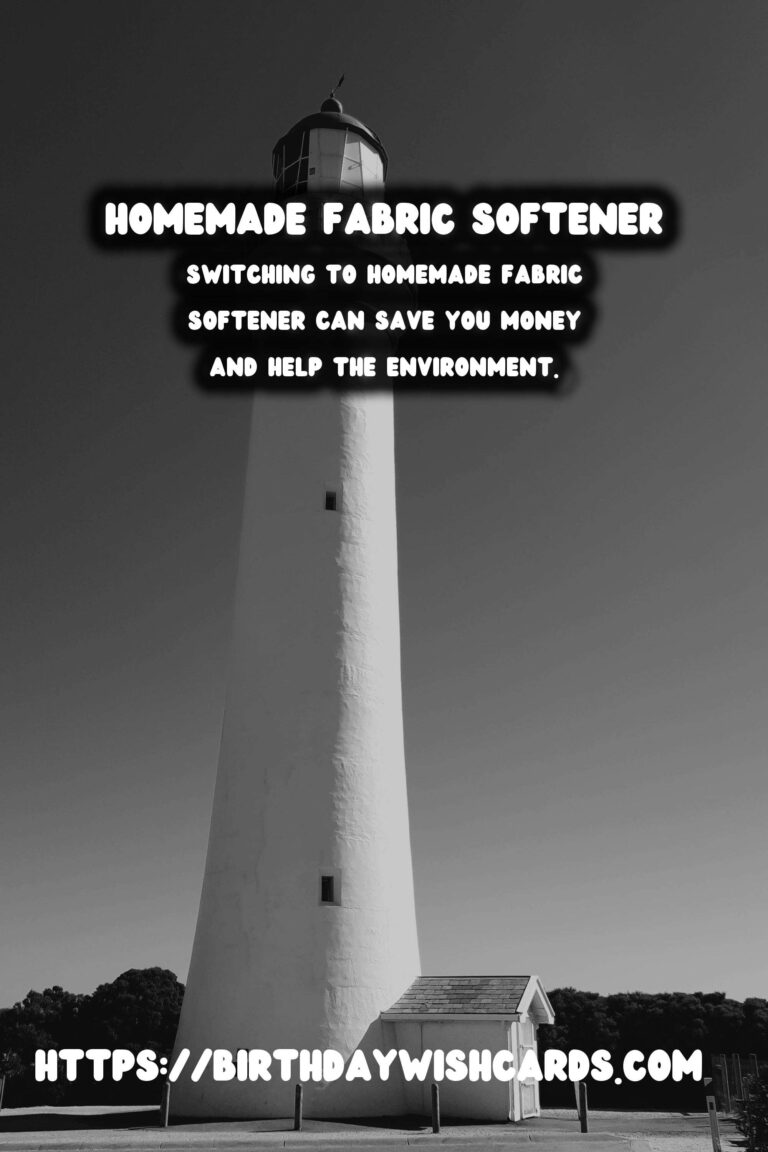
Are you tired of spending money on expensive store-bought fabric softeners? Looking for an eco-friendly alternative that can soften your clothes just as effectively? You’re in the right place. In this guide, we will explore the benefits of making your own homemade fabric softener and provide you with easy-to-follow recipes that are both cost-effective and environmentally friendly.
Why Choose Homemade Fabric Softener?
There are several reasons why you might want to consider using homemade fabric softener. Here are a few:
- Cost-Effectiveness: Store-bought fabric softeners can be pricey, especially if you’re buying premium brands. Making your own is typically much cheaper, using basic ingredients that you may already have at home.
- Eco-Friendly: Many commercial fabric softeners contain harsh chemicals that can harm the environment. With homemade versions, you can choose natural ingredients that are gentler on the planet.
- Personalization: Want your clothes to smell a specific way? Making your own fabric softener allows you to customize scents to your liking, giving your laundry a personal touch.
- Sensitivity: If you have sensitive skin or allergies, store-bought softeners could cause irritation. By making your own, you can avoid ingredients that might trigger allergies.
Basic Ingredients for Homemade Fabric Softener
Before diving into the recipes, let’s look at some common ingredients you’ll need:
- White Vinegar: A natural softener that helps to reduce static and remove detergent residue from fabrics.
- Baking Soda: Helps to soften water, making clothes feel softer and fresher.
- Essential Oils: Adds fragrance and therapeutic properties to your laundry. Popular options include lavender, lemon, and eucalyptus.
- Hair Conditioner: Click here for a quick and easy recipe to make using just vinegar and your favorite conditioner.
Easy Homemade Fabric Softener Recipes
Recipe 1: Vinegar and Baking Soda Softener
This is one of the simplest recipes you can try.
Ingredients:
- 1 cup white vinegar
- 1/2 cup baking soda
- 10-15 drops of essential oil (optional)
Instructions:
- In a large bowl, combine the vinegar and baking soda. The mixture will fizz a bit, so make sure you’re using a container that can handle the reaction.
- Add your choice of essential oils to the mixture for a pleasant scent.
- Once the fizzing stops and everything is well-mixed, pour the solution into a clean storage container, preferably a glass jar.
- Use 1/4 cup of the mixture per load of laundry. Add it during the rinse cycle for optimal softness.
Recipe 2: Vinegar and Hair Conditioner Softener
If you prefer a smoother texture, this hair conditioner-based softener might be for you.
Ingredients:
- 2 cups hair conditioner
- 3 cups white vinegar
- 6 cups of water
Instructions:
- In a large bowl, mix the hair conditioner and vinegar together.
- Slowly add water to the mixture, stirring consistently to blend all ingredients.
- Transfer the final product into a storage container or old fabric softener bottle for ease of use.
- Use 1/4 cup per load, adding it to your washer’s softener dispenser.
Tips for Using Homemade Fabric Softener
While homemade fabric softeners are generally safe and effective, here are a few tips to help you get the most out of them:
- Testing: Before using any new fabric softener on an entire load, test it on a small batch to ensure there’s no adverse reaction with your clothes.
- Storage: Keep your homemade fabric softener in a cool, dry place to extend its shelf life.
- Adjustment: Experiment with ingredient ratios to find what works best for your laundry needs and scent preferences.
Frequently Asked Questions
Can I use homemade fabric softener on all types of fabrics?Most homemade softeners are safe for a wide range of materials, but it’s best to avoid using them on microfibers, water-resistant, or flame-retardant fabrics, as softeners can potentially affect their properties.
Will homemade fabric softener work in high-efficiency (HE) washing machines?Yes, these softeners can be used in HE machines. Just make sure to use the recommended amount to avoid over-sudsing or buildup.
By switching to homemade fabric softener, you not only save on costs but also contribute to a healthier environment and a personalized laundry experience. Give these recipes a try and discover the joy of fresh, soft clothes that align with your eco-friendly values.
Are you tired of spending money on expensive store-bought fabric softeners? Switching to homemade fabric softener can save you money and help the environment. 

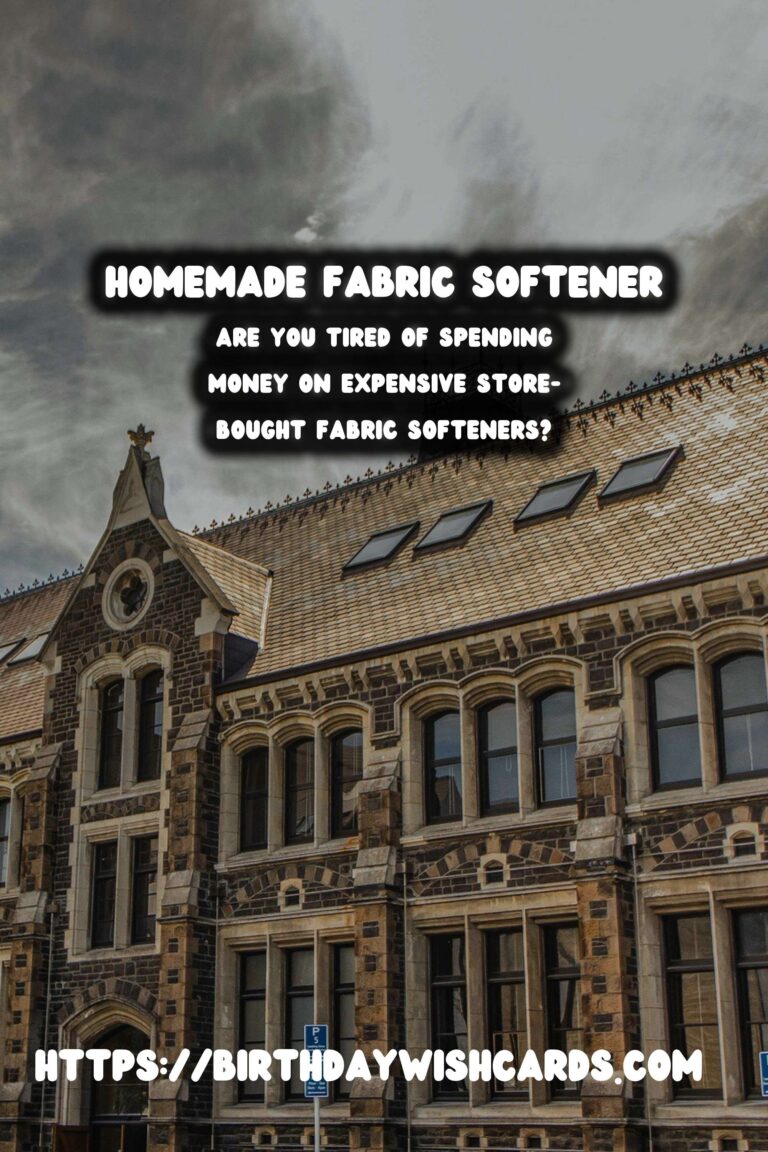
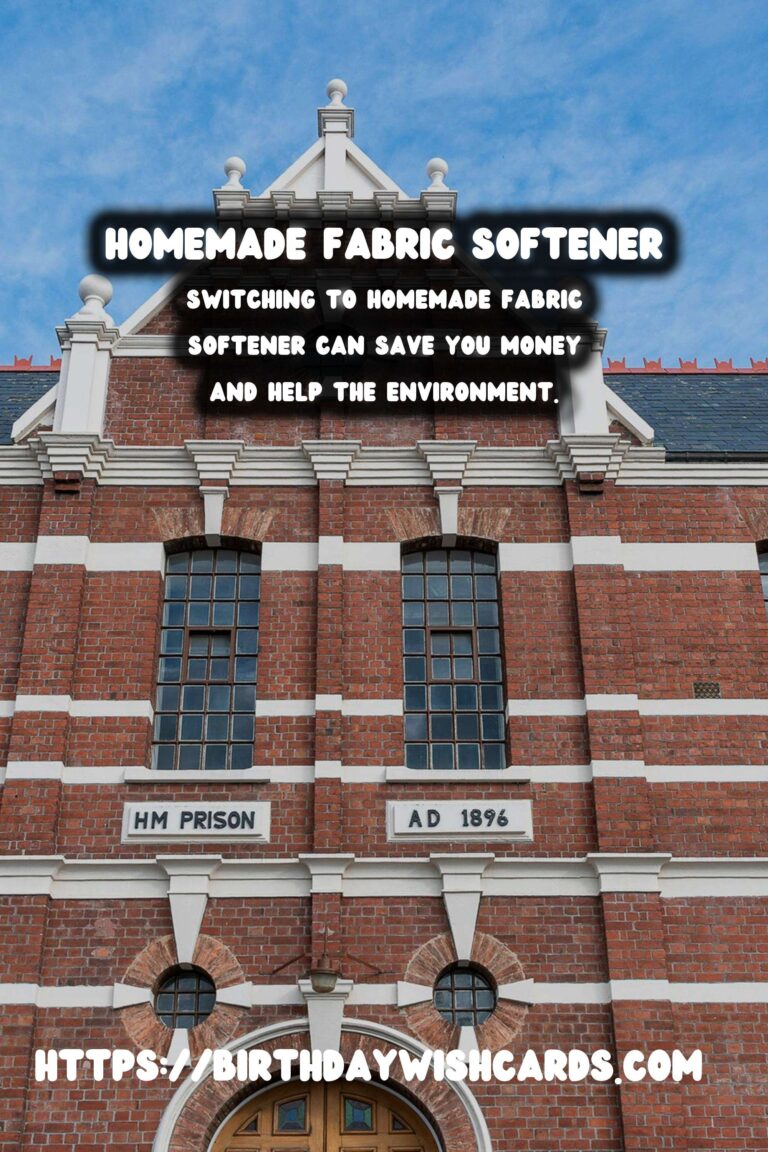
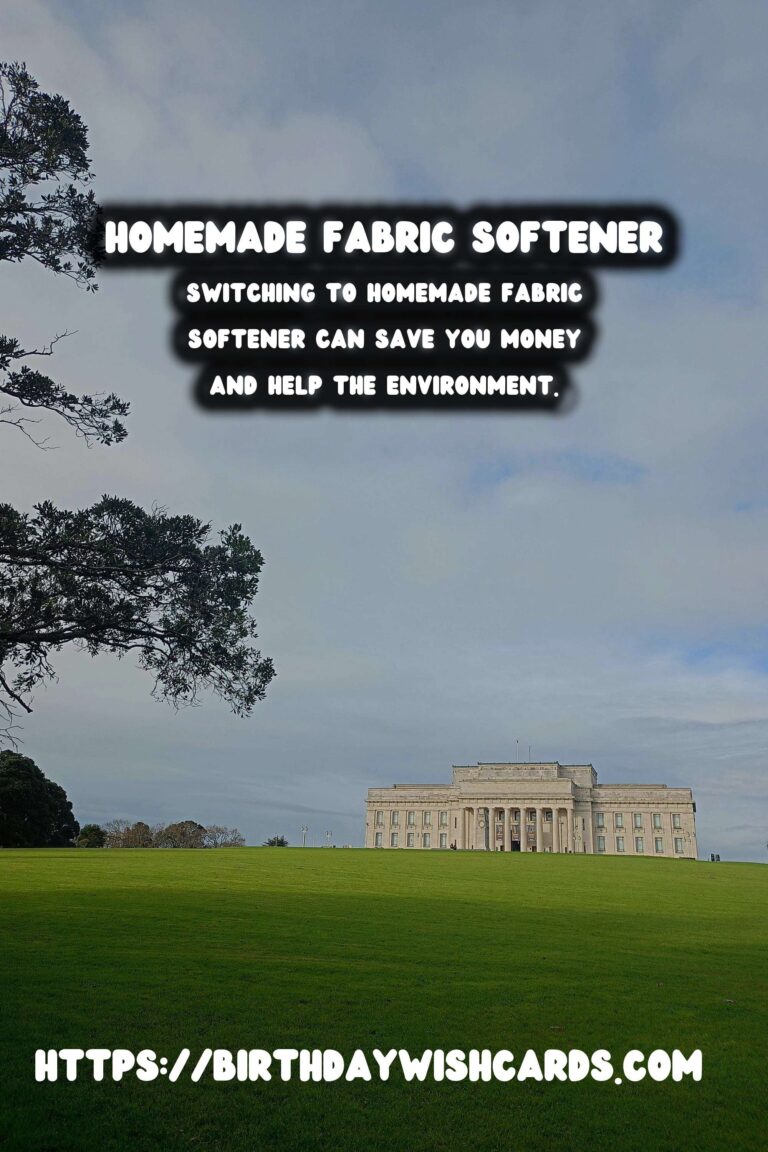

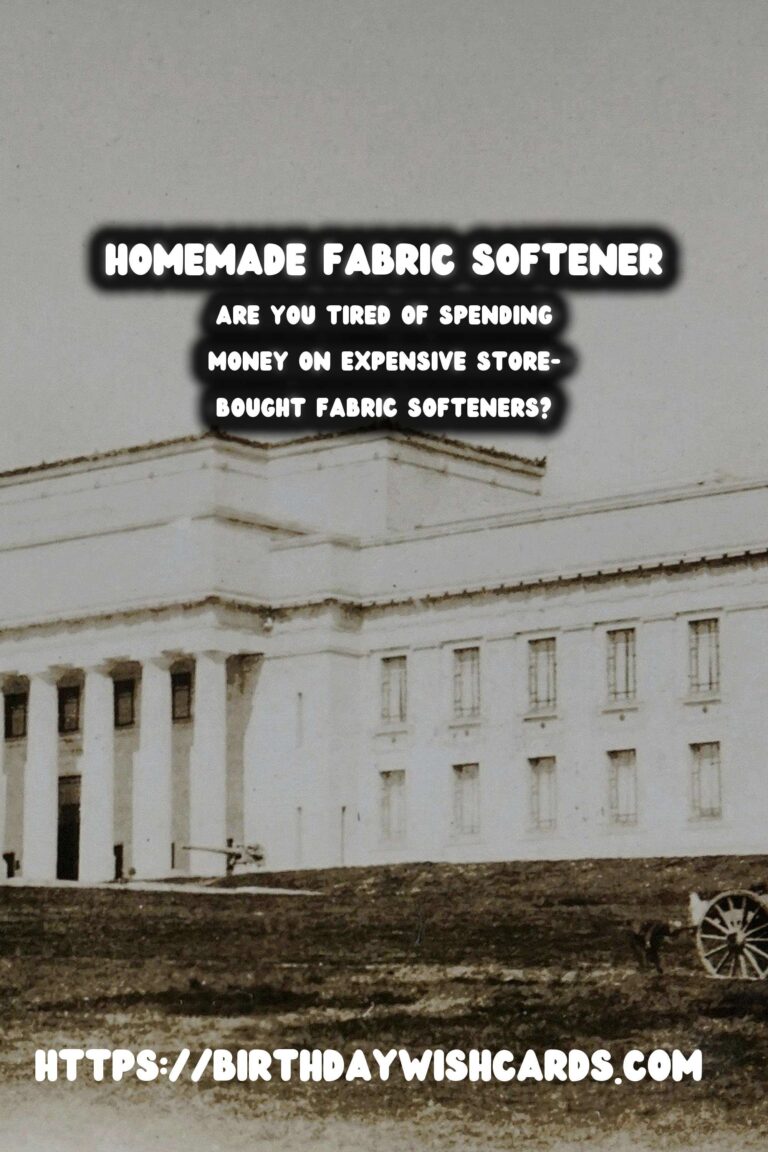

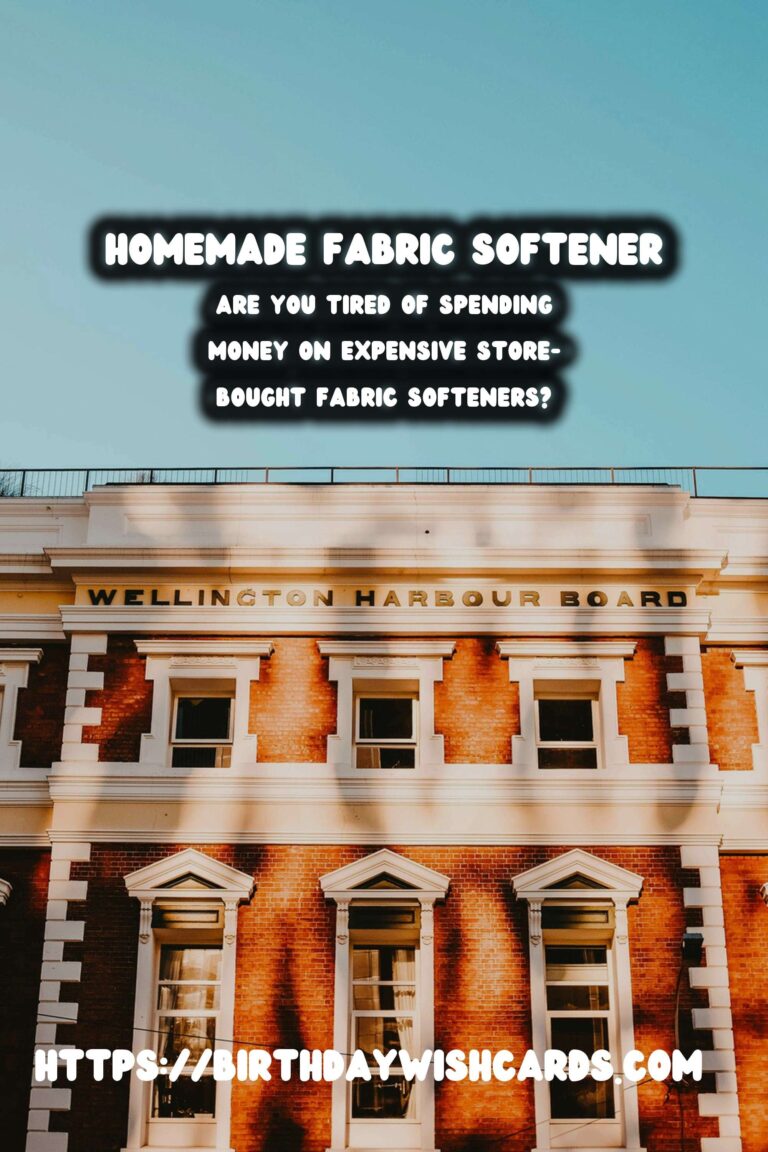

#HomemadeFabricSoftener #EcoFriendlyLaundry



